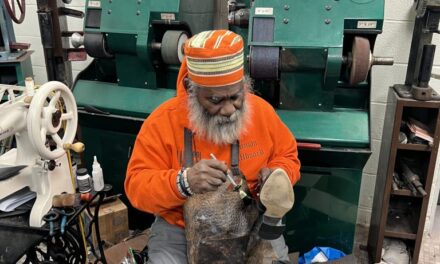By Heather Gann
Alabama state Rep. Juandalynn Givan, D-Birmingham, has pre-filed a bill that would create an alert system dedicated exclusively to missing Black individuals between the ages of 12 to 25.
The system, otherwise known as an Ebony Alert, would work exactly like an Amber Alert, according to the bill’s text.
With HB19, Givan said she hopes to bring more attention to cases that might be overlooked otherwise.
“Nobody sees us,” she said.
“It’s a known fact, and it’s been very well reported, that when it’s someone of color, in many instances, and if they don’t live in the right zip code, that that investigation sometimes goes under the radar versus above the radar.”
Late American journalist Gwen Ifill dubbed this phenomenon “Missing White Woman Syndrome” in 2004 when referring to the amount of media coverage a case will receive depending on the race of the victim.
“If there is a missing white woman, you’re going to cover that every day,” she said at a Unity journalists of color convention in Washington.
And Givan is not the only lawmaker working to address this ongoing issue.
California recently became the first state to establish an Ebony Alert system introduced last session by State Sen. Steven Bradford.
“The Ebony Alert will ensure that vital resources and attention are given so we can bring home missing Black children and women in the same way we search for any missing child and missing person,” Bradford said in a previous statement announcing the bill’s signing.
In 2022, roughly 546,000 people were reported missing across the U.S. with 36% of those cases identified as Black women and children, according to data from the National Crime Information Center.
This is more than twice the percentage of the U.S. population Black people make up (13%), according to Census data.
White women and children/Hispanic women and children, which are lumped into the same category by the FBI, make up a little more than half of the missing persons cases while accounting for 75% of the overall female population.
Although Black women go missing at much higher rates, a 2016 study conducted by Northwestern University determined that white women accounted for 49.74% of American media coverage surrounding missing women, with the next highest demographic being white men at 17.40%.
“This bill simply says that black women, women of color, and brown girls matter,” Givan said.
“The reason why we need the extra spotlight is again, you’re not going to have the stories like Natalee Holloway. You’re not going to have a Gabby Petito type of situation where those stories were so big, they were so sensationalized. Because these were all American, good, young, white, Anglo-Saxon females who all of a sudden disappeared.”
Givan said she is confident that one case that did make national headlines last year, the Carlee Russell kidnapping hoax, will not prevent her bill from moving forward despite doing so in the past.
“Before the Carlee Russell situation, I had already prepared this legislation,” she said.
“It was already prepared to be sponsored in. And then of course, that monstrosity of a debacle just put everything on ice because at that point everybody was feeling a certain kind of way.”
Russell seemingly vanished July 13, 2023, after calling 911, and a family member, to report seeing a child, about 3 or 4 years old only wearing a diaper, walking alone on I-459.
In March she pleaded guilty to false reporting to law enforcement authorities and false reporting an incident.
But after allowing some time to pass, Givan said she is eager to move forward with the bill this session and in future sessions until it is signed.
“The realization is not every bill is going to pass the first year,” she said.
“And of course, anything dealing with race in America is going to be sensitive…So if not this year, then next year we come back and guess what? We can get this legislation passed because at that point, it’s been vetted. You’ve heard the pros, you’ve heard the cons. You know those things you have to work on.”











